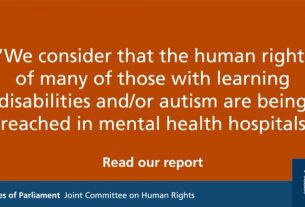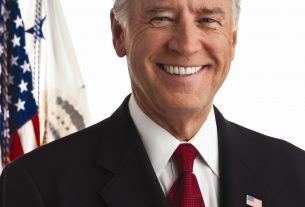Boris Johnson has laid out England’s exit from lockdown, declaring “the end is in sight” on the day the UK passed 129,498 deaths of people with Covid-19.
The prime minister’s “cautious but also irreversible” road map out of lockdown is, he hopes, a “one way road to freedom” where even nightclubs could be open on June 21 with the lifting of the last social restrictions, Johnson said, while denying he was taking a “buccaneering” approach.
Research released by Sage using various scenarios for easing restrictions forecasts thousands more deaths and hospitalisations – “even the more optimistic outcomes showed that more than 32,000 people could die between now and the end of June” because vaccines are not 100% effective and not everyone will have the jabs.
Sunak set to extend ‘life support’ measures for economy – reports FT
Chancellor Rishi Sunak is preparing to “extend emergency economic life-support measures until the summer” with next week’s budget (on March 3) set to include job protection measures and help for businesses “through weeks or even months of further disruption”, the Financial Times reports.
Vaccines do not provide 100% protection against any virus and scenarios based on modelling done by teams at Imperial College London and Warwick University – released by Sage, the government’s Scientific Advisory Group for Emergencies, and reported in the FT – forecast “more than 32,000 people” may die between now and the end of June.
The government’s four stage plan does not exactly follow any of the models used by the researchers, however, a scenario from Imperial that “took a similar path” to the government’s, “estimated a further 150-000-280-000 people would be hospitalised and 32,000-54,800 people would die between February and the end of June.”
Four tests for four stages
The four stages to lifting all restrictions are based on four tests that must be met, and Johnson said the data and not the dates will determine the government’s action.
Firstly, the vaccination roll-out must proceed according to plan. Secondly, the vaccines must be showing effectiveness in reducing death rates and hospitalisations. Thirdly, infection rates must not risk a surge in hospitalisations. Fourthly, new variants of the coronavirus must not fundamentally alter the risk of lifting restrictions.
Stage one – March 8 and 29
All schools and colleges in England will reopen on March 8 when the first of four stages to lift restrictions begins. Among other measures, one nominated person will be allowed to visit their relative in care homes, subject to wearing proper PPE, passing a lateral flow test, and keeping “physical contact to a minimum”.
Three weeks later, on March 29, groups of up to six people or two households will be allowed to meet outside. The “stay at home” rule ends, outdoor sports facilities will reopen and formally organised sports events can resume. Parent and children groups will be allowed to meet outdoors – capped at 15 people
Stage two – April 12
All shops will be allowed to reopen on April 12, when pubs and restaurants can reopen for outside service. Gyms, spas, hairdresser, beauty salons can open, subject to slight restrictions and UK “staycations” away from home are allowed. Zoos, theme parks and drive-in cinemas will also reopen, as too libraries and community centres. Weddings will be allowed to have up to 15 people.
Stage three – May 17
Groups of up to 30 will be allowed to meet outdoors and six people or two households can meet indoors. Weddings, christenings and other “life events” can have up to 30 people and all other outdoor entertainment venues can open, as too indoor venues such as museums, theatres and cinemas.
Hotels, B7Bs and hostesl can also reopen and performances and large events will be permitted, subject to limits of half capacity or 1,000 people for indoor events and up to 4,000 people outdoors. Venues with 40,000-plus capacity will be allowed 10,000 people.
Non-essential international travel will not be permitted before May 17 – and airlines have already reported a rush of interest and bookings – see below.
Stage four – June 21
Summer solstice will see all legal limits on social contact lifted and nightclubs reopen.
Life events will have no legal limits on numbers attending and the government will run pilots for events from April to help determine how testing might be used to allow large groups without requiring social distancing measures.
EasyJet records 630% surge in holiday bookings
EasyJet has announced a 337% surge in flight bookings and 630% for holiday bookings with chief executive Johan Lundgren saying today’s announcement “provided a much needed boost in confidence” for UK customers.
Travel agent Tui reported their busiest day in more than a month while Thomas Cook said traffic to its website is up over 100% following the prime minister’s address to the Commons this afternoon.




